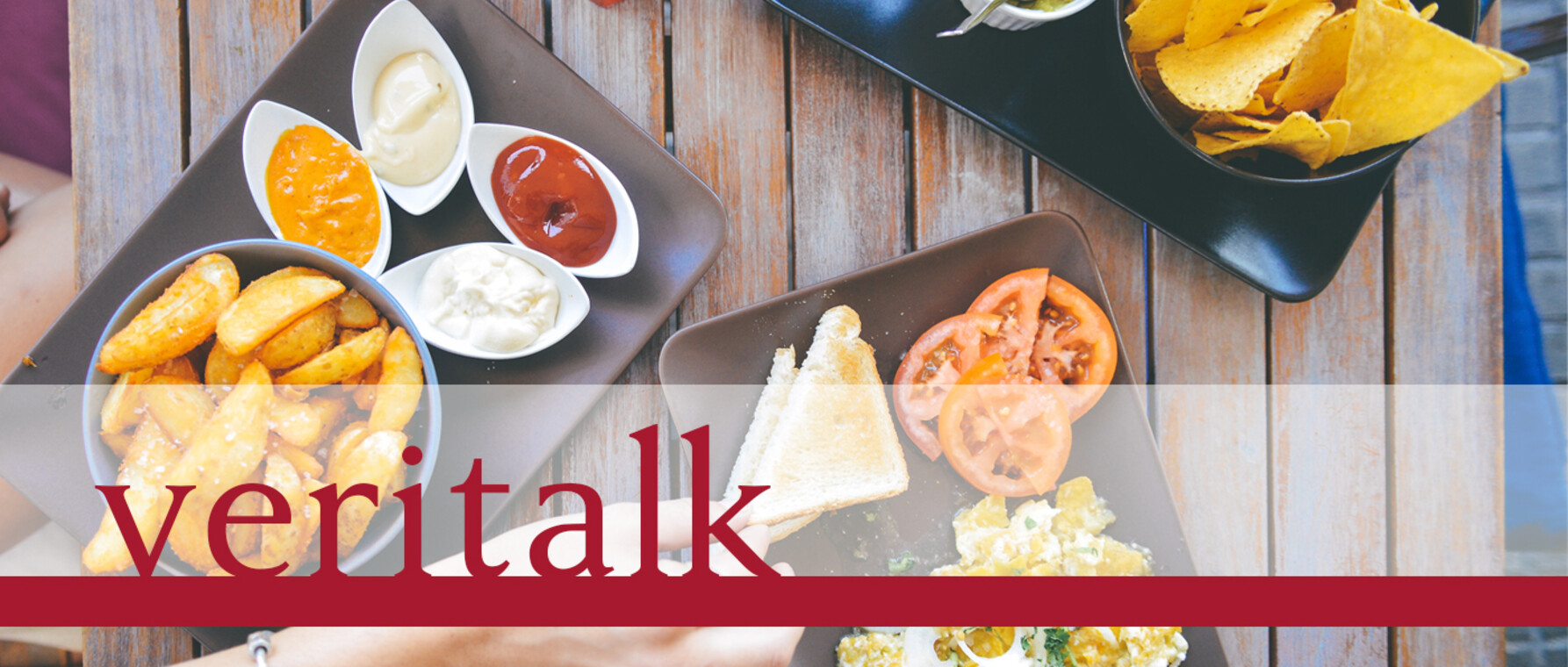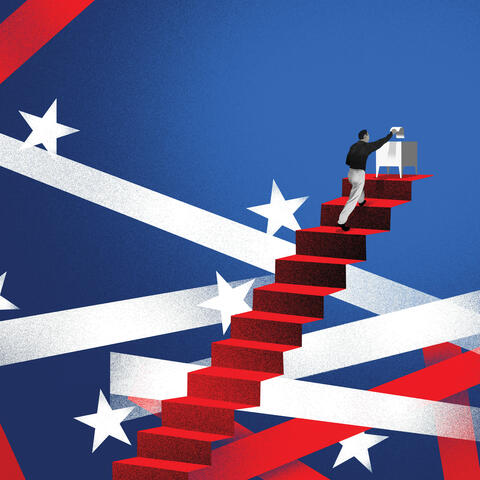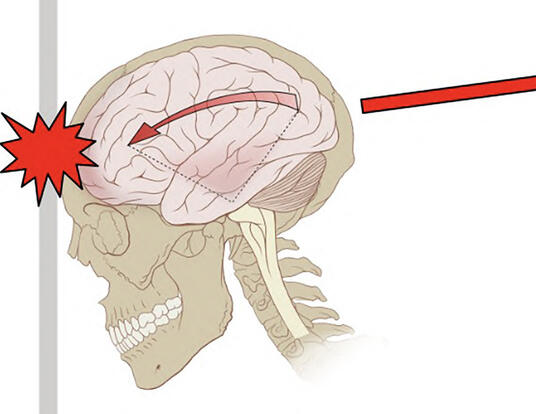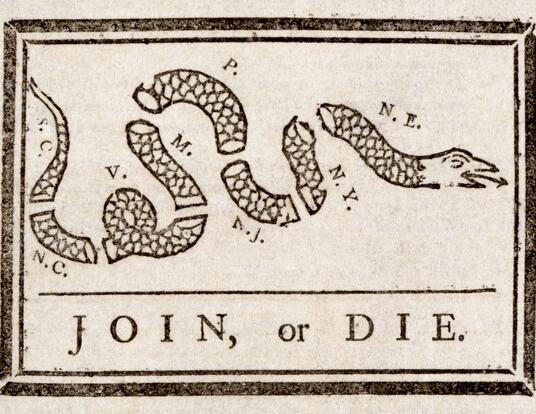Your Body Isn't Broken
PhD student Hannah Cory says that nutrition education alone can't make teens healthy

Before she became a PhD candidate in Population Health Sciences, Hannah Cory was on the front lines of the childhood obesity epidemic, working as a dietician in a public school system. But she noticed that simply educating teens about nutrition and exercise wasn’t having a big impact on their health. Now, Hannah’s research seeks to uncover the connection between fat-phobia, racism, and obesity in the US.
Interview Highlights
"[The body mass index, BMI] was not created for finding disease. It was just this idea that there is a perfect ratio of humanity. And, then, in the early 1900s, eugenicists were like, 'We like that.'" - Hannah Cory on the history of BMI in public health.
"70 to 80 percent of variability that we see in body weight is genetic, and we do know that. And so it's an interesting thing to go after something that we know is pretty genetic, especially when there are lots of other factors that are likely driving these things." - Hannah Cory on body weight vs. overall health.
Full Transcript
Anna Fisher-Pinkert: From the Harvard Graduate School of Arts and Sciences, you’re listening to Veritalk. Your window into the minds of PhDs at Harvard University. I’m Anna Fisher-Pinkert.
Last week, we talked about how humans evolved to create this amazing substance, breast milk, that offers unique benefits to babies’ bodies. But, eventually, we all grow up. We stop drinking breast milk or formula, and we graduate to mushy peas or little bites of whatever’s on our parents’ plates. And then, at some point, we get to make our own choices about what we eat. But that doesn’t mean that those choices are obvious or easy. In fact, Americans are kind of obsessed with the choices that children and teens make around food.
Clip from TV:
Narrator: In a city with a growing epidemic. . .
Distressed woman: I've tried everything. I've tried going to the gym, I just can't get up the motivation.
Jamie Oliver: This is going to kill your children.
Child: I was trying to be healthy, but apparently it didn't work.
AFP: In the midst of our national debate about how to wage war on childhood obesity, Hannah Cory was sitting right on the front lines. Hannah was a registered dietitian in a school-based health clinic.
Hannah Cory: So I was working in Ypsilanti, Michigan, which is like in between Ann Arbor and Detroit. So the community that I was working in was largely low income, most school-based health centers are based in low income communities.
AFP: The set up of a school-based health clinic is pretty unique. It’s basically designed to be the perfect tool to educate kids and teens about how to eat healthy.
HC: It's a free clinic. Once kids have consent from their parents to be seen in the clinic, we can see them basically whenever and we don't ever charge the families anything. We do sometimes charge their insurance. But otherwise it's basically a free clinic. It was basically ideal. I'd always been told in classes like, you know, the issue is that we don't have follow up with patients. We don't have access to them. We can't meet them where they're at. Whereas I could be walking down the hall, a kid could be like, "Hey, Miss Hannah. I wanted to talk today," and I can get them out of band class that day. Like it was almost an ideal situation in terms of access. And so, I was able to see patients over years and work with them. And I knew their families, and I knew where they were shopping and all their options. And it felt like: This is perfect. I'm going to fix everything. Everyone will be able to be healthy because they have access to this. And that's when I started realizing like, no, the deck is stacked against these kids, and it doesn't matter whether or not they have access to me.
AFP: That realization led Hannah to pursue her PhD in Population Health Sciences at Harvard. Her program is offered through the Graduate School of Arts and Sciences and the Harvard T.H. Chan School of Public Health. Hannah is also a Health Policy Research Scholar through the Robert Wood Johnson Foundation. In her work at Harvard, Hannah's trying to fill in the gaps in our understanding of how nutrition, health, and discrimination intersect.
HC: There isn't a lot of acknowledgment in the literature of the fact that the "obesity epidemic" has been like a panic for almost two decades now. So most of the kids I'm working with have been exposed to nutrition education most of their lives in some capacity. I would have students coming in to meet with me and they could already tell me everything I was going to tell them. I think it's short sighted to think that it's education alone.
AFP: The schools where Hannah worked were home to a lot of families of color, and I asked Hannah what challenges her students had that their white, wealthy peers didn’t have.
HC: There are so many things. I don't even I don't even really work in like food access and food justice work which was definitely a big piece of that.
AFP: A lot of people know that so-called “food deserts” lead to poor nutrition, but there’s a lot more going on. For example, it’s only fairly recently that research has come out about the eating behaviors of families on SNAP benefits.
HC: When we talk about binge-eating and stuff like that, one of the things missing from that literature is that there are kids that are on SNAP benefits. And so what happens often is that their family gets about two weeks of food, and they buy as much as they can, and then they go through it--because imagine having a household with a bunch of kids and being like, OK, make sure this lasts for the month. Like it would look like they were bingeing, but what was really happening was just like they didn't have food. They were eating like very little or just at school for like weeks at a time, especially towards the end of the month. When I was working at the clinic, I like knew the date that these kids got SNAP benefits because that's when they could actually do something about what they were eating. And once you get into that cycle, your body then also gets used to, OK sometimes I just eat a ton and sometimes I eat nothing. So not only were they being like not able to "control" what they were eating because of the circumstances of SNAP, but then it also set them up for these like patterns of eating that way.
AFP: Remember when Hannah said the deck was stacked against these kids? Well, once they’re in a clinical setting, they encounter more challenges.
HC: We do know that in general minority populations have higher BMIs. And part of that is because the man who created it created it for white people. And the idea was that he was going to find the perfect man. But when he said that he meant someone that looked like him.
AFP: BMI, or the body mass index, was invented in the early 1800s by a Belgian mathematician, not a doctor.
HC: That is something that often gets lost is that this was created not for finding disease. It was just along this idea of like there is a perfect ratio of humanity. And, then, in the early 1900s, eugenicists were like, "We like that." And so they picked it up and that is why BMI is used today is because eugenicists really liked it as a measure. And then it just kind of got codified and put into medical practice. And part of that was because they were like, OK we do see these connections potentially of BMI and disease rate. We talk about that. But if you actually look at the numbers, BMI as like a screening tool--you know, we talk about like mammograms and all of these different screening tools--BMI has a false positive rate of 51 percent.
AFP: But doctors frequently point to a high BMI as evidence that a patient is unhealthy.
HC: If someone was trying to sell you a screening tool, and they're like, "OK, so 51 percent of the time we tell people that they're sick and they're not." We would laugh them out the door. We'd be like there's no way that you can sell this to me. Because we already have these notions in our head, I think, of being fat is bad, we're like, OK that makes total sense to me. And so there's like a lack of questioning that happens because it's confirming the biases that we have.
AFP: So, even though BMI is not a good indicator of whether someone is healthy, it reinforces our cultural norm that thin bodies are “good” and fat bodies are “bad.”
HC: And that's something that we see in any sort of discrimination. Like that's what racism is, is that there are good bodies, white bodies, and that there are other bodies.
AFP: Also, Hannah says that your weight is more likely to be a result of your genes than a result of your personal choices.
HC: Actually, 70 to 80 percent of variability that we see in body weight is genetic, and we do know that. And so it's an interesting thing to go after something that we know is pretty genetic, especially when there are lots of other factors that are likely driving these things.
AFP: Hannah saw this firsthand in Ypsilanti. As a part of the school-based clinic program, any student who was over the 85th percentile in BMI, which the CDC classifies as overweight or obese, was automatically given a referral to see Hannah. But she also saw a lot of students who were at a so-called “normal” BMI who had other questions about their diet--for example, students who were interested in sports nutrition.
HC: And so when I was working with these kids, I was like, OK, I do think that these kids could be eating more healthfully. But that was across the board. Oftentimes, the kids who were being referred to me were eating actually much more healthy because they had been hearing these messages their entire life. And I think that's actually a very common misconception. And I think if you talk to a lot of people that have lived their lives in fat bodies, they've been dieting and been told these things since they were very young, almost always. And so often they are actually practicing more healthful behaviors than the kid who, you know, is very thin just because genetically they're very thin, and they can eat kind of whatever they want, it doesn’t matter if they house a pizza.
AFP: Hannah believes that fat phobia also contributes to poor health outcomes. She points out that back in the day, we thought that African-Americans had a higher rate of hypertension because of genetics. Now, we know that experiencing racial discrimination is also a factor in developing hypertension. She thinks that future studies need to look at, for example, the link between Type 2 diabetes and discrimination against people who are overweight.
HC: I am very hopeful that in the next decade these studies will start measuring weight discrimination and looking at it over the life course. None of those studies have ever tried to control for what it means to live in this world in a fat body, which is a stressful experience! Especially in a world that is like so focused on obesity prevention.
AFP: Despite the preponderance of evidence that personal choices are not the most important factor when it comes to obesity, our culture is still obsessed with what we eat and how we eat it.
HC: And so it's an interesting thing to me always when people want to glorify a certain type of food versus demonize it, because it almost--not always--but it will often fall into the categories of, this is something that white people have decided is OK, versus this is something that other people do. So, for example, quinoa, that was something that was like traditionally a Latin American food that many people had been eating for centuries, but someone decided that it was the thing for white people to eat. And, you know, it took off.
AFP: Even the updated version of the Food Pyramid, which is called My Plate, is skewed towards the way that white Americans tend to eat.
HC: And so, for example, especially in a lot of ethnic cuisines, mixed dishes are what you're going to find. You're not going to find like a steak and potatoes. And like that is a very white way to eat, is this like meat-potato that sort of thing. And so there is kind of this implicit assumption that that is how you’re going to eat, but what does it look like when you’re having this dish where it's like, all those things are in there, but I have no idea in what proportion.
AFP: Hannah’s advisor, Josie Mattei, is actually working on adapting nutrition education tools to make them more inclusive for Latinx families. Hannah thinks that we need to stop focusing on the “right” or “wrong” foods, just like we need to stop focusing on the “right” or “wrong” bodies.
HC: There is this idea that like there is a right way to eat and a wrong way to eat, and that is something that I think has very much come out of-- has been like an unfortunate and unintended consequence of a lot of the nutrition work that has occurred in the last few decades, especially with the obesity epidemic. For example, the trend of like clean eating. There is this idea of like there's a right way to do things. And there is a way to be righteous and correct. And I think we see that manifesting in food.
AFP: Has the science of what is a healthy food gotten significantly better in the last couple of decades? Cause I feel like you hear, “This is a super food. This is what we need to eat.” So is there science behind that? Are we actually learning more about the relationship between foods and our bodies? Or is that all kind of pseudo-science?
HC: It's a mix. It's definitely a mix. Part of the difficulty is that-- and often when you hear something like this is a superfood, that sort of thing--what that is, is that there is likely a bench scientist who found some compound that appears to do X, Y, or Z in this mouse or, you know, these rats, that is very promising. And, there's nothing wrong with that type of science, but the problem is that often it will get glommed onto by media and kind of run with.
People have very real fears. We all have to like in some way deal with our mortality everyday, and nutrition has been pointed to as something that we can potentially control. I can't control that my grandparents had cancer, but I can eat a healthy diet, and I can exercise. And so I think people will focus on those things, and then if there's something that sounds like, "Oh, like maybe this will save me, or this will like prevent this thing that feels inevitable," it makes sense that those things get like glommed on to a bit and that people would get excited about that and really want it to be real.
AFP: If you could make one change in a system that you think would help people to eat better or have better outcomes related to nutrition, what would that change be?
HC: One of the things that, again, has really driven me, is that I spent an inordinate amount of time in the clinic just telling adolescent girls that their bodies weren't broken and that nothing was wrong with them. I think if I could I would remove all of these notions about focusing on weight. And, I mean, I'm hoping that my work will at least like inch us there.
AFP: Walking out of my conversations with Hannah, I kept thinking and re-thinking all of the assumptions that I make about healthy eating. Whether it’s thinking that a green juice is going to magically help me lose weight, or thinking that teaching kids about veggies is going to make them less likely to be obese. Throughout this series, we’ve been thinking about food--what it means to us emotionally, culturally, biologically, nutritionally--and, what I take away, is that we should be kinder to each other about what we choose to feed ourselves and our families. Whether it’s chicken tikka masala, baby formula, a vegan burger, or a whole pizza, we all need to eat.
This is the final episode of our series on food. But, if you can’t get enough Veritalk, you can always go back through our archives. We have episodes about Cities, Displacement, Plumage, and Monsters. And remember, we have that extra cool collaborative episode on the podcast Proof featuring even more microbes! So, search for Proof on your favorite podcatcher.
We make this show because we love talking to really smart people who are finding new ways to understand the world. And, if you like listening to this show as much as we love making it, rate us and leave us a review wherever you’re listening right now.
Veritalk is produced by me, Anna Fisher-Pinkert.
Our sound designer is Ian Coss.
Our logo is by Emily Crowell.
Our executive producer is Ann Hall.
Special thanks this week to Hannah Cory, Rick Sheiber, Julia King, Noah Leavitt, and the PRX Podcast Garage.
Hannah Cory’s work is funded by the Robert Wood Johnson Foundation and the Strategic Training Initiative for the Prevention of Eating Disorders, a public health incubator at the Harvard T.H. Chan School of Public Health and Boston Children’s Hospital.
Logo by Emily Crowell
Get the Latest Updates
Join Our Newsletter
Subscribe to Colloquy Podcast
Simplecast





